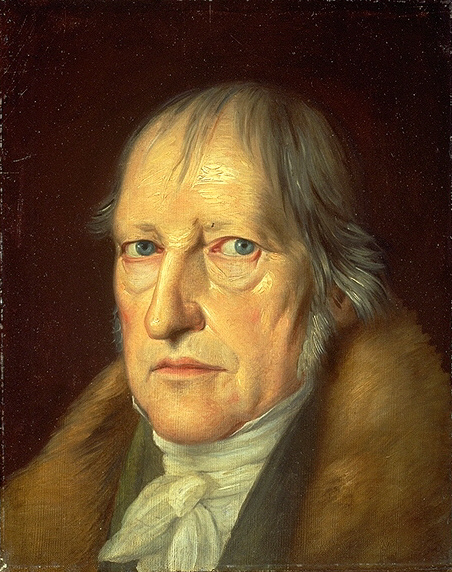"Hegel
Myths and Legends" is an anthology defending Hegel against accusations
that he was a totalitarian obscurantist and proto-Nazi who divinized the state,
glorified war and supported German nationalism. In the Anglo-Saxon world, these
accusations are mostly associated with Karl Popper. Other claims about Hegel
the editors believe are incorrect include his supposed belief in "the end
of history", the dialectical schema thesis-antithesis-synthesis, and his
attempt to prove that there could only be seven planets (I never heard that one
before). A legend not mentioned in the book is the claim that Hegel was an occultist
and Rosicrucian.
I admit that I haven't studied the issue sufficiently to judge whether "Hegel Myths and Legends" is true, false or falls somewhere in between. Several of the contributors admit that Hegel's philosophy has been used by virtually all political groups, and even some Christian theologians, to justify their own pet ideas. Hegelianism, it seems, has a protean quality. Apart from right-Hegelians and left-Hegelians, there were also centrist Hegelians. It seems that the editors and contributors to this volume want to see Hegel in a centrist light. Thus, they claim that Hegel favoured a constitutional monarchy and moderately liberal democracy, that he attempted to stay clear of both the Holy Alliance and the radical opposition in Prussia, that his ideas about "the real being the rational" have been torn out of context, etc. They also claim that Hegel was an abolitionist.
Curiously, the anthology also contain a text denying that Hegel was an enlightenment philosopher, instead connecting him to the "irrationalist" stream within European philosophy. The author seems to think that this is something positive!
The most sensational text in this collection claims that the dialectical triad thesis-antithesis-synthesis cannot be found in Hegel, but comes from an erroneous interpretation by an otherwise unknown Kantian scholar, a certain Chalybäus. Apparently, Karl Marx read his book about Hegel, and the rest is history.
On two points, I believe the authors are quite correct. Hegel surely didn't believe in "the end of history", since he said that the World Spirit might manifest itself in the United States in the future (i.e. Prussia isn't the end of historical development). The idea about "the end of history" seems to be a concoction of one Alexandre Kojève, a French Hegelian often regarded as highly idiosyncratic by Hegelian scholars. The other point concerns German nationalism. Hegel, of course, supported Napoleon. Later, he made his peace with the Holy Alliance, which wasn't nationalist either. Indeed, at the time *liberalism* was associated with nationalism!
What I don't understand about "Hegel Myths and Legends" is the exact status of the contributing authors. Are they really Hegelians? Some kind of neo-centrist Hegelians, perhaps? But what on earth can being a Hegelian possibly mean today? Or are they simply scholars who believe that Hegel had some interesting ideas worth looking into, and who for that reason want to defend the old man's reputation?
Although "Hegel Myths and Legends" is apparently intended for students, it isn't an easy read. You need to be relatively well informed about Hegel, or at least the myths and legends surrounding him, to really appreciate it. Frankly, it's a typically boring scholarly tome.
But yes, it might be worth looking into if you actually plan to read "Phenomenology of the Spirit"...
Hegel, it seems, is all things to all people.

No comments:
Post a Comment